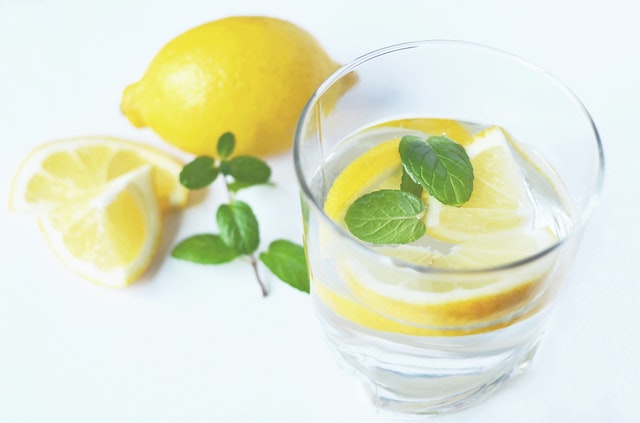I have often heard, both my clients over a consultation, or friends over a casual talk about weight-loss techniques & complaining why losing weight is such a humongous effort, and wish there was a magic cure to weight loss.
I’ll have to say here, there is .
Now when I say “magic” I don’t mean it in an incredulous, overnight way. What I mean is that it works in the most simplified way, as opposed to intricately crafted complicated ways of losing weight. Plus, there are numerous advantages to it than just losing weight. I don’t think there is a better definition of magic than this in today’s time.
As the heading suggests, that genie in the bottle is indeed, water.
So how does water help
We all know water is important for survival, but here’s how water functions for our body:
Water Can Help Control Calories: For years, dieters have been drinking lots of water as a weight loss strategy. Water helps you feel full. It has zero calories, so substituting calorie-loaded drinks with water can easily cut several hundred empty calories from your diet each day. Water also helps regulate metabolism and increases energy levels.
In absence of sufficient water, you also tend to eat more and gain weight. A 2010 research by the Institute for Public Health and Water Research found that those who drank almost “2 eight ounce glasses of water before each meal consumed 75 to 90 fewer calories while eating.” When you are drinking enough water, you are also feeding the cells and tissues in your body that gets the enzymatic system moving, which actually releases fat toxins out of the body.
Helps Maintain Normal Bowel Function: You must have heard parents and grandparents stressing on the importance of a healthy stomach as a means to keep most ailments at bay. By not eliminating food that we digest we not only gain weight, but also gain toxins. Adequate hydration keeps things flowing along your gastrointestinal tract and prevents constipation.
Keeps our kidneys working: Kidneys remove waste from our bodies, help control our blood pressure, and balance fluids, so they’re crucial to keeping our systems running smoothly. Harvard Medical School notes an effective way to prevent kidney stones is to stay hydrated. Water can dilute the chemicals which can turn into crystals, so drinking enough water is very important. Harvard recommends at least two liters – eight glasses – a day to keep your body healthy.
Aids in preventing heart diseases: Keeping the body hydrated helps the heart easily pump blood through the blood vessels to the muscles. And, it helps the muscles work efficiently. If you’re well hydrated, your heart doesn’t have to work as hard and hence reduce heart attacks.
Slows down process of skin ageing and wrinkling: Many studies have proven that water makes skin firm, fills in fine lines and wrinkles and brightens an uneven complexion.
Kaiser Permanent nephrologist Steven Guest, MD, agrees: “Fluid losses occur continuously, from skin evaporation, breathing, urine, and stool, and these losses must be replaced daily for good health.”
Prevent headaches, naturally. Going without water for too long causes headaches for some people, and has been identified as a migraine trigger. The good news is that in a study on the effects of water on headaches, participants experienced “total relief” from their headaches within 30 minutes of drinking water (two cups, on average)
Help keep us alert. If you’re going to need to concentrate for long periods of time, keep water handy to help you stay refreshed, hydrated, and focused. Dehydration can impair your attention span, memory, and motor skills
Protects our joints and cartilage. Water keeps the cartilage around our joints hydrated and supple, ensuring that our joints stay lubricated. It also protects our spinal cord and tissues, keeping us healthy inside out.

It might protect against some types of cancer: Research has found that the greater the fluid intake, the lower the incidence of bladder cancer, with more significant results when the fluid is water. One possible reason could be that urinating more frequently prevents the buildup of bladder carcinogens. Staying hydrated may also reduce the risk of colon cancer and breast cancer.
Fight dehydration: The how-to guide
The first sign of dehydration is fatigue. When your water intake does not equal your output, you can become dehydrated. When the body begins to dehydrate, it normally means the tissues are not getting enough water to make a person feel energetic. Dehydration has also been looked upon as a migraine-trigger. Fluid losses are accentuated in warmer climates, during strenuous exercise, in high altitudes, and in older adults, whose sense of thirst may not be as sharp.
European Food Safety Authority recommends that women should drink about 1.6 litres of fluid and men should drink about 2.0 litres of fluid per day. That’s about eight glasses of 200ml each for a woman, and 10 glasses of 200ml each for a man.
However, your size, the temperature and how active you are can all make a difference (so if you’re exercising a lot on a hot day, you’ll need to drink more).
The American College of Sports Medicine guidelines for fluid intake before and during physical activity recommend that people drink about 17 ounces of fluid about two hours before exercise. During exercise, they recommend that people start drinking fluids early, and drink them at regular intervals to replace fluids lost by sweating.
5 Tips to Help You Drink More:

- Keep a bottle of water handy at all times in your car, at your desk, or in your bag.
- Have a beverage with every snack and meal. You’re likely to drink more liquids if you like the way they taste, although try and avoid aerated drinks or beverages loaded with too much sugar or artificial flavorings.
- You can add natural flavorings like mint, lemon or cucumber to your water if you’re not fond of drinking plain water.
- Eat more fruits and vegetables. Their high water content will add to your hydration. About 20% of our fluid intake comes from foods.
- Choose beverages that meet your individual needs. If you’re watching calories, go for non-caloric beverages or water. Beverages like green tea, all-natural juices and smoothies are a reliable way to increase water intake without any harm.
Finally More water please
These recommendations are for healthy adult men and women, not children. If you suffer from diseases like heart failure, kidney disease, diabetes or other nutritional disorders, please consult with your primary care provider before making changes to your lifestyle.


